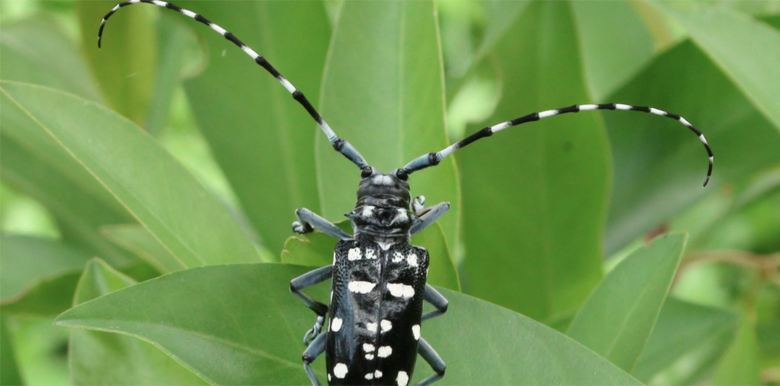Innovation is an occasional story series on Memphis’ continued push to the cutting edge.
Duane McKenna is a key player on a global hunt for an economic friend and threat, and his team is now armed with a $1.3 million grant to fuel the search.
McKenna is a Harvard-educated beetle expert at the University of Memphis (U of M). He teaches biology at U o M, but also founded the school’s Center for Biodiversity Research and the Agriculture and Food Tech Research Cluster on the campus.
This year, he and his team won a $1.3 million grant from the federal National Science Foundaiton (NSF) to study how beetles taste and smell (chemosensation). Knowing how they find food and eat can, perhaps, allow scientists to find them more easily.
The beetles are pollinators. So, knowing where they are can aid agriculture. The beetles eat wood. So, being able to find them, McKenna said, could avoid multi-billion-dollar destruction of forest land in eastern North America.

”We are going to learn things about the beetles that relate to how they find plants or even wood that they’re eating and how they find it,” McKenna said. “Knowing those two things, it provides us with mechanisms that facilitate control — or, in the case of invasives that come into the U.S. — an understanding of how to trap them and find where they are. This is actually very valuable because, otherwise, it’s sort of a needle in a haystack kind of thing, or looking for an animal that’s, you know, a centimeter long.”
The Asian longhorn beetle has been introduced in North America many times, McKenna said, but has been eradicated each time. These beetles are also threats to home property values, too, and were found to inhabit whole neighborhoods in places like Boston and Chicago.
The new grant spans five years. With it, McKenna will work with Stephanie Haddad, a research assistant professor in U of M’s Department of Biological Sciences. They will hire some post-graduate students to help. But those students will also get training in the methods used by McKenna and other working scientists to “themselves become educators and mentors,” McKenna said. They will all work with other scientists around the world (specifically in Australia, South America, and Europe) as these beetles are found everywhere but Antarctica.
The project has another global pursuit. McKenna’s team will also sequence the genomes of 15 beetles as part of an international effort housed at the University of California-Davis to sequence the genomes of representative groups of all life on Earth over the next 10 years.
The project could cost as much as $4.7 billion.
The Earth Biogenome Project is called a “moonshot for biology” and a way ”to help discover the remaining 80 to 90 percent of species that are currently hidden from science.” The project could cost as much as $4.7 billion but could be a “complete transformation of the scientific understanding of life on Earth and a vital new resource for global innovations in medicine, agriculture, conservation, technology, and genomics.”
